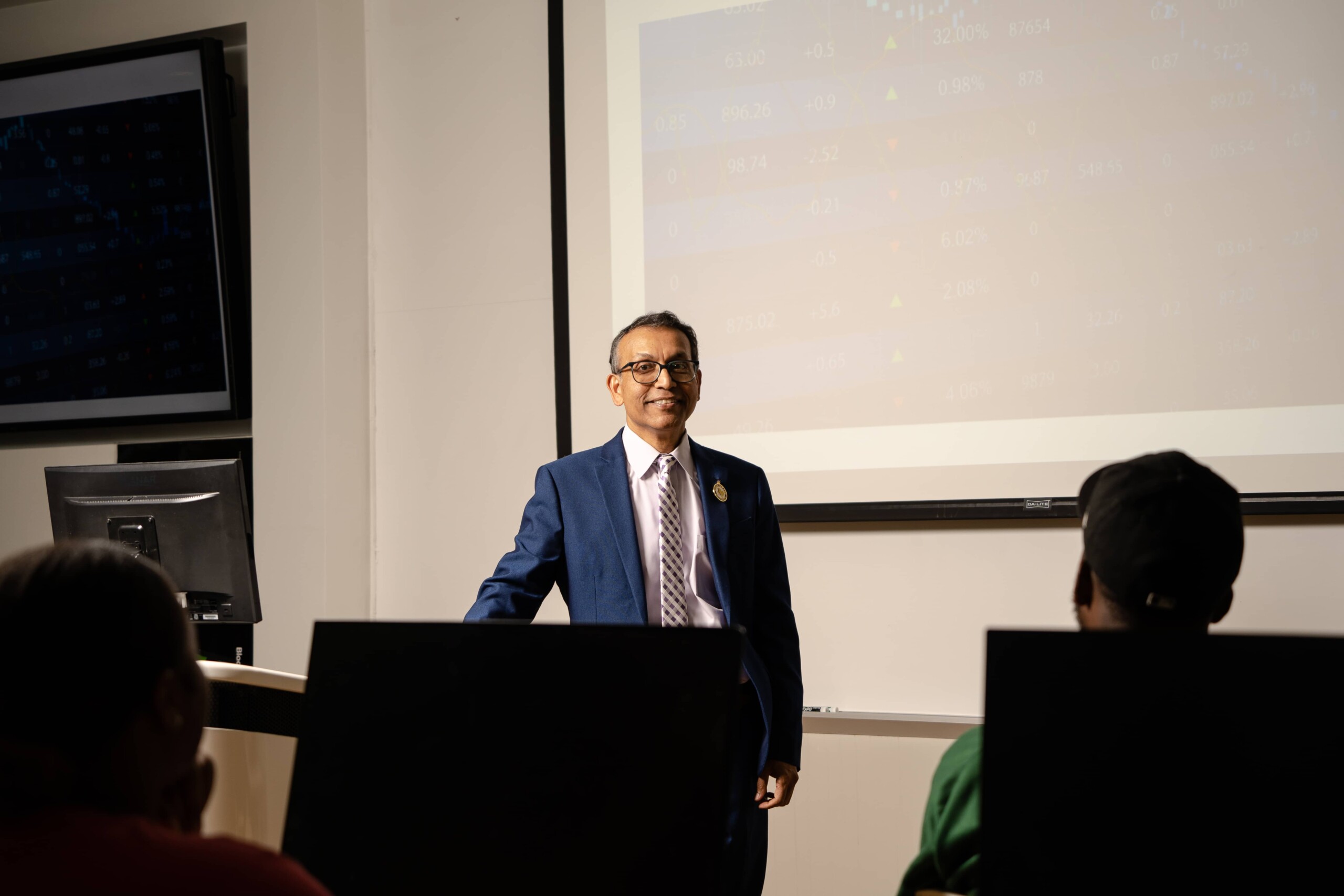Munir Quddus, Ph.D., was in sixth grade when the Bangladesh Liberation War broke out in 1971, a nine-month civil war between West Pakistan (now Pakistan) and East Pakistan (now Bangladesh). It marked a time of brutal violence and nationwide upheaval that turned his family’s home into a war zone as they sought shelter under their beds from bullets flying overhead. Overnight, they went from their comfortable life in the middle class with an army doctor father to fleeing the country for safety.
Eventually, the family was repatriated to the newly formed country of Bangladesh. But they had lost their home, their livelihood, and everything they owned. The childhood trauma of surviving a civil war is perhaps what drew Dr. Quddus to education and economy, notably two pillars of security and stability in a society.
“I have come to appreciate education and have devoted my life to teaching, research and building institutions of higher learning,” Quddus said. “Research has shown the universities are among the longest-lasting institutions because they deliver so much value to the society.”
A development economist by training, Quddus is now dean and endowed professor of economics in the College of Business at Prairie View A&M University.
“I believe in colleges and universities; we have the unique task of educating one student at a time, which leads to a better world. As a nation, one cannot underestimate the value of education,” Quddus said, highlighting the importance of HBCUs, which serve historically underrepresented students. He says that educating students from these diverse, underrepresented backgrounds – racially and socioeconomically – is vital because education elevates not just the graduate but often the entire family.
“I believe in colleges and universities; we have the unique task of educating one student at a time, which leads to a better world.”

“I believe in colleges and universities; we have the unique task of educating one student at a time, which leads to a better world.”
Despite the brief disruption to his education, Quddus came to the States at 22 and went on to pursue an M.A. and a Ph.D. in economics at Vanderbilt University. His dissertation examined food market models that may be impacted by destabilizing forces which disrupt supply and demand chains, investigating ways to prevent mass starvation and famines.
With a 1996 Senior Fulbright Research and Teaching Grant, Quddus investigated the feasibility of credit unions in Bangladesh’s apparel export industry, ultimately publishing “Entrepreneurs and Economic Development: The Remarkable Story of Garment Exports from Bangladesh” in 2000. He then joined PVAMU in 2001 as a tenured professor of economics and COB dean before he was appointed to the endowed professorship in 2022.
Quddus enjoys teaching because he believes in training the next generation of business leaders and global-minded economists. “I would like my students to be confident and prepared enough to contribute on the world stage.”
“As a development economist,” he continued, “I also hope to help address problems such as global poverty, endemic food insecurity, and a lack of universal primary education for millions of children. My other goals include empowering women and promoting gender equality in all societies through research, teaching and service. Finally, it’s about supporting policies which lead to a more just, stable and sustainable economies and democratic societies.”

